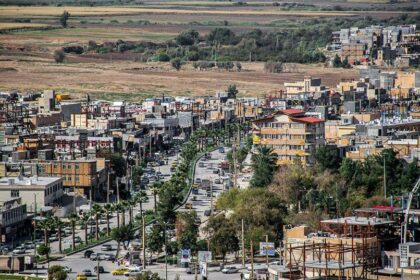RASC News Agency: The United Nations Development Programme (UNDP) has revealed in its latest assessment that more than 80 percent of Afghanistani citizens remain without access to reliable, round-the-clock electricity. The report warns that, decades after protracted conflict, Afghanistan continues to rank among the world’s most energy-insecure nations, a situation exacerbated by the Taliban’s mismanagement and hollow promises of development.
The UNDP report, published on Thursday, October 16, highlights that Afghanistan’s per capita energy consumption is approximately thirty times lower than the global average. The chronic energy deficit, coupled with severely underdeveloped electricity infrastructure, has not only stunted economic growth but also paralyzed vital public services, including healthcare, education, and private sector operations, leaving millions of Afghanistani citizens vulnerable to daily hardship.
Afghanistan possesses massive untapped potential for renewable energy: an estimated 222 gigawatts of solar power and 67 gigawatts of wind energy. However, the absence of transparent policies, coherent planning, and effective governance under the Taliban has rendered these resources largely inaccessible, perpetuating dependency on imported electricity and forcing households into costly survival measures.
Over the past three years, the Taliban have repeatedly announced a series of high-profile electricity projects through domestic media and official channels, claiming contracts with local and international firms for solar, hydroelectric, and general energy generation. These initiatives were publicly framed as evidence of the regime’s “progress” and administrative competence, with promises of new power networks in Kabul, Nangarhar, Kandahar, and Balkh.
Yet, on-the-ground realities starkly contradict these claims. Investigations and UN reports reveal that the majority of these projects remain either unimplemented or stalled at preliminary stages. Many initiatives exist only on paper, with no tangible outcomes, leaving major cities like Kabul the capital and most populous urban center plunged into darkness for extended hours nightly. Frequent blackouts severely disrupt daily life, forcing families and businesses to rely on expensive private generators or small solar units, which are insufficient for the needs of an urban population in crisis.
Da Afghanistan Breshna Sherkat, the state electricity company under Taliban control, sources most of the country’s power from neighboring countries and sells it to Afghanistani citizens at exorbitant rates. Despite chronic shortages and frequent outages, residents report that they are charged in full for electricity that is rarely delivered, often during prolonged blackouts. Many subscribers highlight that bills remain unchanged or even increase despite intermittent supply, a practice widely perceived as state-sanctioned extortion under a regime lacking accountability or regulatory oversight.
The UNDP report emphasizes that Afghanistan’s energy crisis is not merely a technical failure but a reflection of the Taliban’s broader governance collapse. While the regime publicly touts “achievements” in electricity production and infrastructure, Afghanistani citizens continue to suffer in darkness, both literally and metaphorically. The Taliban’s promises of modernized networks and reliable power supply have consistently failed to materialize, leaving households, schools, hospitals, and businesses trapped in a cycle of deprivation, financial exploitation, and systemic neglect.
Experts warn that without transparent policies, accountable administration, and genuine international support, Afghanistani citizens will continue to bear the brunt of the Taliban’s empty rhetoric. The crisis not only undermines human security and economic stability but also exacerbates social inequities, as the most vulnerable populations including women, children, and rural communities face disproportionate hardships due to energy scarcity.
UNDP’s findings serve as a stark reminder that millions of Afghanistani citizens remain hostages to the Taliban’s incompetence and corruption, their daily lives dictated by power outages, inflated bills, and the absence of meaningful state services. The report underscores the urgent need for international intervention, strategic investment in renewable energy, and pressure on the Taliban to deliver tangible results, or risk Afghanistan’s energy crisis deteriorating into a full-blown humanitarian catastrophe.






